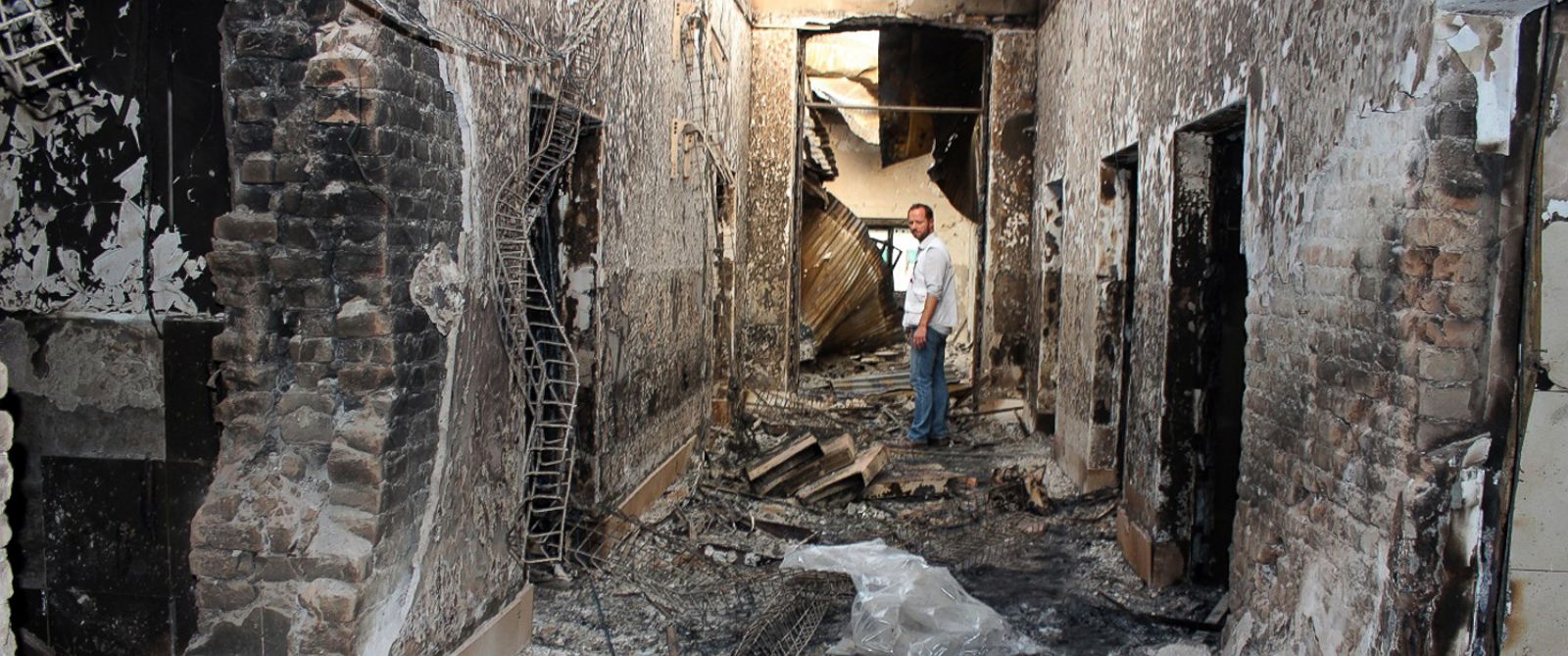A U.S. military investigation has determined that a Doctors Without Borders hospital in Kunduz, Afghanistan, was mistakenly targeted by the crew of an AC-130 gunship that believed it was targeting another compound several hundred yards away that had been taken over by theTaliban, a U.S. official said today.
The hospital was targeted by mistake based on visual descriptions provided by U.S. and Afghan special operations forces that seemed to match the other compound seized by the Taliban, said the U.S. officials familiar with the contents of the report. Doctors Without Borders has said that the airstrike killed at least 30 doctors and patients at the hospital.
On Wednesday, Gen. John Campbell, the senior U.S. commander in Afghanistan, is set to release conclusions of a 3,000-page investigative report into the airstrike. Shortly after the airstrike occurred, Campbell told Congress that it had been a mistake and soon after President Obama apologized to the president of Doctors Without Borders, also known by its French name, Médecins Sans Frontières.
The investigation found that the mistaken targeting of the hospital occurred as the result of visual descriptions of another compound in the same general area that had been seized by the Taliban, according to the U.S. official, who noted that the AC-130 crew had also not received a full pre-flight briefing prior to the mission as they had been redirected from another location. Such a briefing could have contained information that the location of the Doctors Without Borders hospital was a protected site. The New York Times first disclosed the investigation's conclusions today.
The airstrike on the hospital in Kunduz occurred as Afghan forces continued to retake the city that had been seized by the Taliban days earlier. U.S. special operations teams served as advisers to the Afghan forces involved in clearing the city of Taliban fighters.
The crew aboard the AC-130 gunship was flying over Kunduz in the early morning hours of Oct. 3 when it was contacted by a U.S. special operations team working with Afghan special operations forces, the U.S. official said.
The Afghans requested an airstrike on a building compound in the city that housed the National Directorate of Security (NDS) -- Afghanistan’s intelligence service, the U.S. official said, noting that the Afghans believed the compound had been taken over by the Taliban and was being used as a base of operations.
The U.S. special operations team relayed a general location for the NDS compound and relayed visual descriptions of what it looked like to the crew of the AC-130 gunship flying overhead, the U.S. officials said. This was done to help the AC-130 crew locate the compound because of technical issues with targeting equipment aboard the plane.
Using the visual details provided by the American team on the ground, the crew of the AC-130 located what they believed to be the NDS building compound.
Unknowingly, the crew had located the Doctors Without Borders hospital that had similar features to the NDS compound described by the teams on the ground, the U.S. official said. While in the same general area as the NDS compound, the Doctors Without Borders compound was several hundred yards away from the NDS compound.
Doctors Without Borders had called for an independent investigation into what it had labeled a war crime. The organization's own investigation into the incident included details that updated GPS coordinates for the hospital in Kunduz had been provided to the U.S. military in Afghanistan just days prior to the airstrike.
Seeking to eliminate any potential conflicts of interest in the U.S. military's investigation into the attack, Gen. Campbell ordered a two-star general, not under his command, to head an exhaustive investigation into the airstrike.
The 3,000-page investigative report will be used for potential actions of accountability for U.S. military personnel involved in the airstrike, according to the U.S. official.


No comments:
Post a Comment